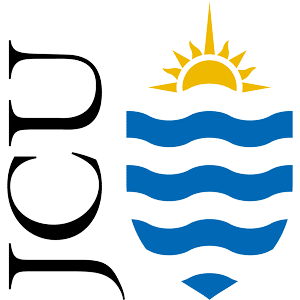Further your nurse career. Choose a top-rated master's degree from an Australian university.

A Masters in Nursing is an advanced training program for registered nurses that goes beyond basic skills. In Australia, higher-level qualifications are essential for roles such as Nurse Unit Manager, Clinical Nurse Consultant, and Nurse Educator.
Online courses offer a convenient and affordable way to study. Balance nursing and family commitments while earning a degree. You can typically complete a masters part-time in two years. Choose a specialisation to achieve career goals.
Best Online Nursing Masters
Ready to elevate your nursing career? Discover the top Masters of Nursing offered 100% online in Australia. Whether you're aiming to specialise in Advanced Practice, Leadership, Mental Health, or Education, these courses are designed to fit around your busy lifestyle.
JCU Online - Master of Advanced Practice Nursing
The Advanced Practice major at James Cook University develops your ability to deliver comprehensive care in clinical settings. Specialised topics include advanced and applied health assessments, quality use of medicines, and diagnostic reasoning. The 12-subject online program gives the option to start with a graduate certificate (4 units) or graduate diploma (8 units). You can potentially finish the accelerated (year-round) course in under 2 years while working full-time.
SCU Online - Master of Mental Health Nursing
Southern Cross University's Master of Mental Health Nursing is ACMHN accredited. Graduates qualify as credentialed mental health nurses. The budget-friendly course is available to Division 1 Registered Nurses. Each of the 12 modules requires less than two months to finish, allowing you to earn your degree in under two years part-time. Subjects cover evaluating research, acute mental healthcare, behavioural change support, and clinical leadership.
JCU Online - Master of Nursing Leadership and Management
As part of the popular Master of Nursing program at James Cook University, you can major in Leadership and Management. Specialised electives cover topics such as leading and managing in health, ethics and health management, finance for health managers, and conflict and dispute resolution. The program is 100% online and open to RNs. You can complete the 12-subject program in just under 2 years part-time. Most participants balance online study with a full-time job.
JCU Online - Master of Nursing Education
An Education major is available in the postgraduate nursing program at James Cook University. You need to complete these electives: Principles of Education for the Health Professional, Teaching in Practice Settings, Clinical Coaching, and Contemporary Healthcare Education. The course is 100% online and ideal for nurses who may be working full-time. The 12-subject degree takes 2 years of part-time study. All resources are accessible via an online learning platform.
Why a Masters Degree Is Worth It
Given Australia's strong healthcare system and rising demand for specialised nurses, a Master's in Nursing is a high-return investment. Postgraduate education is the clearest and strongest pathway to career advancement as a nurse.
The average salary for a nurse with a master's degree in Australia is from 6% to 65% higher than for other nurses. The degree provides financial security and opens up job opportunities in management, clinical consulting, and education.
With the availability of online degrees, you can complete your degree without any time away from work. FEE-HELP loans also cover tuition fees, meaning you can get started straight away without any financial worries.
Related: Is a Masters in Nursing Worth It in Australia?
Specialisations
Nursing masters aim to be comprehensive and well-rounded but also offer opportunities for specialisation. You can choose a program and major to achieve career goals.
A Masters of Advanced Nursing Practice extends the clinical abilities of registered nurses. The program builds nursing competencies and may qualify you to be an advanced practice nurse. Gain skills and knowledge to assess, plan and implement complex care. You may also learn to diagnose and evaluate care in a specialist capacity.
A Masters in Critical Care Nursing is for nurses working in settings like Intensive Care Units where rapid, complex decision-making is crucial. Critical care nurses attend to patients who need close monitoring due to life-threatening conditions, such as respiratory distress, cardiac issues, organ failure, or post-surgical complications.
Masters of Emergency Nursing are for nurses in emergency departments or other settings where time is of the essence. An emergency nurse sees patients presenting with life-threatening conditions or other problems requiring urgent treatment, such as burns, fractures, concussions, abdominal pain, fever or open wounds.
Related: How to Become an Emergency Nurse
A Master of Nursing (Leadership and Management) is ideal for experienced nurses interested in administration jobs within healthcare. Roles a graduate would be well positioned to do include manager of a nurse unit, nursing coordinator, health services manager, or health facilities manager.
As a registered nurse in Australia, you have a clear path to specialising in mental health. You can complete a Master of Mental Health Nursing program accredited by the Australian College of Mental Health Nurses. That would make you eligible to become a credentialed mental health nurse.
A Masters in Nursing Education prepares nurses for senior roles in nurse education and training, continuing education, and staff development in healthcare. The program expands your knowledge in the art of teaching and promoting learning. You gain instruction skills to help guide and train nurses and other health services professionals.
What You'll Study (Course Structure)
Masters in Nursing courses are often specialised, so what you will study is course dependent. However, most postgraduate programs cover general topics such as clinical governance, management and leadership, persuasive communication, and research methods.
To give you an idea of the course structure for a 12-subject degree, here are example subjects from several majors. Some of these form a four-subject Graduate Certificate in Nursing course or an 8-subject Graduate Diploma in Nursing.
James Cook University
Advanced Practice
Advanced Health Assessment
Applied Health Assessment and Advanced Practice
Diagnostic Reasoning for Advanced Practice
Quality Use of Medicines in Practice
Education
Clinical Coaching
Contemporary Healthcare Education
Principles of Education for the Health Professional
Teaching in Practice Settings
Leadership and Management
Business and Finance for the Health Manager
Conflict and Dispute Resolution in Healthcare
Ethics and Health Management
Leading and Managing in Health
Career Opportunities

With nursing being a large employment sector, earning a master's degree creates many career opportunities. Postgraduate education supports movement into specialist, management and nurse educator roles. Examples of jobs you may qualify for include clinical nurse specialist, clinical nurse consultant, nurse trainer, nurse unit manager, and nursing director.
The degree opens up new prospective career paths. Anything beyond ordinary jobs for registered nurses may become available to you with an advanced qualification. Here are examples of specialist and high-level roles that postgraduate study may support or enable.
A Clinical Nurse Specialist is an advanced role defined in nurse pay agreements in Victoria and NSW. To qualify for these higher-pay designations, postgraduate education is almost essential.
To become a Clinical Nurse Specialist, you must showcase expert clinical skills, leadership capabilities, and a strong contribution to patient care and nursing practices. The role requires substantial experience in a specialised nursing field, ongoing professional development, and the skills to guide and instruct junior nursing staff.
Clinical Nurse Consultant (CNC) is a leadership position within a nursing unit or area of practice. It is defined or referred to in most state public sector enterprise bargaining agreements for nurses and is normally a level above Clinical Nurse Specialist. The role of a CNC is to provide expert clinical advice, lead quality improvement initiatives, and manage complex patient cases. CNCs are also responsible for strategic planning and the implementation of best practices in patient care.
A nursing master's is almost essential to compete successfully for CNC positions. Candidates are expected to have extensive clinical experience, demonstrate advanced clinical and leadership capabilities, and show a proven track record in their specialisation. A postgraduate education helps develop the knowledge, research skills, and clinical expertise to excel in this advanced practice nursing role.
If you're keen on stepping up in the healthcare world and assuminig leadership positions, a postgraduate degree in nursing is a smart move. Focusing on Leadership and Management in your studies can set you up for more senior roles.
As noted by Your Career, nurse managers oversee services in hospitals, aged care homes, and community health centres. Their job includes overseeing the staff, keeping the budget in check, and ensuring everyone receives safe and efficient care. They also focus on maintaining high standards of care, meeting clinical benchmarks, and encouraging professional development among the nursing staff.
A Nurse Practitioner (NP) is a registered nurse who is experienced in their clinical specialty and educated at a master's level. The NP is also endorsed by the Nurses and Midwives Board of Australia to deliver patient care in advanced and extended clinical capacities.
By gaining extra clinical and academic education, you extend what you're able to do professionally. You're able to assess patients and diagnose health problems to a greater extent than is ordinarily allowed. For example, nurse practitioners may work in primary health care supporting GP-led general practice teams. NPs are the highest-paid nurses in Australia.
According to NSW Health, extra elements of professional practice include being able to:
- do advanced health assessments
- commence and interpret diagnostic investigations such as imaging and pathology
- diagnose health problems
- implement therapeutic regimens in collaboration with patients, health professionals and families/carers
- prescribe medications
- initiate and receive appropriate types of referrals.
For endorsement as a nurse practitioner, you need to complete an approved Master of Nurse Practitioner or similar degree.
A mental health nurse is specialised in the care of people experiencing psychological illness or distress. To qualify in this field, you need a Graduate Diploma in Mental Health Nursing or a specialist master's degree.
By working in this area, you may benefit from solid employment growth and high average salaries. These nurses may support clients suffering from conditions such as anxiety, depression, bipolar disorder or schizophrenia. A key part of the job is to promote well-being generally, including in terms of psychological, emotional and physical health.
Mental health nurses need to understand psychological conditions, how symptoms can be managed, and how to adjust care for the needs of individual clients. They work in many health care settings, including hospitals, aged care and psychiatric facilities.
A nurse educator supports learning for nurses in the workplace and generally makes sure that nurses keep up to date with advances in their profession. A nurse educator may design, plan, instruct and assess education and learning in hospitals and other health care facilities. They also encourage, plan and facilitate professional development and clinical education.
Education is important in this occupational field since it's essentially all about further education of fellow professionals. A masters specialising in Nursing Education is highly advantageous.
Entry Requirements
Common entry requirements are: a Bachelor of Nursing degree or equivalent qualification AND registration as a Registered Nurse (Division 1) or Registered Midwife AND a year of clinical experience.
For specialist study streams, you may also have to currently work in a relevant health setting. Enquire to find out the detailed requirements for any of the online programs listed.
Note that very different requirements apply for Master of Nursing (graduate entry) programs. Entry to practice Masters of Nursing degrees are unavailable online. The main admission requirement for these nurse training courses is a bachelor degree in any discipline.
Tuition fees are in the order of $2,580 to $2,905 per subject. The total course cost for a 12-subject degree is in the order of $30,960 to $34,860.
FEE-HELP government loans are available to Australian students to cover tuition fees. Loans are paid back gradually based on your future taxable income.
International students are eligible to do many Masters of Nursing programs in Australia. English language proficiency requirements apply.
Fully online courses are unavailable to international students on a Student Visa however.
Completing a Master of Nursing does not allow you to become a registered nurse in Australia. Eligibility for registration would require you to do an APHRA-approved bridging course.
Your previous studies may be recognised with credit towards your online postgraduate course. Prior learning needs to meet course requirements.
Generally, you need to receive an offer of enrolment first. You may then be eligible to apply for recognition of studies you completed with another institution. A determination may be reserved for students who have accepted an enrolment offer. It's a good idea to speak with an Enrolment Advisor early in the process to find out where you stand.
When you study online for a masters degree in nursing, you'll typically study as part of a virtual class. In other words, you'll do subjects together with classmates who you'll be able to connect with online.
Accelerated online courses are structured so that you study part-time and only do one subject at a time. Each subject is completed over a 6-7 week study period. You'll then have a short break before moving on to the next subject. Studying online this way, you're able to complete six subjects in a year.
A dedicated student success advisor will be available to help with any of your non-academic questions and issues.
Assessment does not include exams typically. Instead, you'll be assessed as you go using assignments, projects, quizzes, etc.
Distance learning is designed to fit within your busy lifestyle. Live online sessions may be available but won't be compulsory. Lectures and other instructional sessions are recorded and available at your convenience.
Related: Can I Do Nursing Masters Online?









